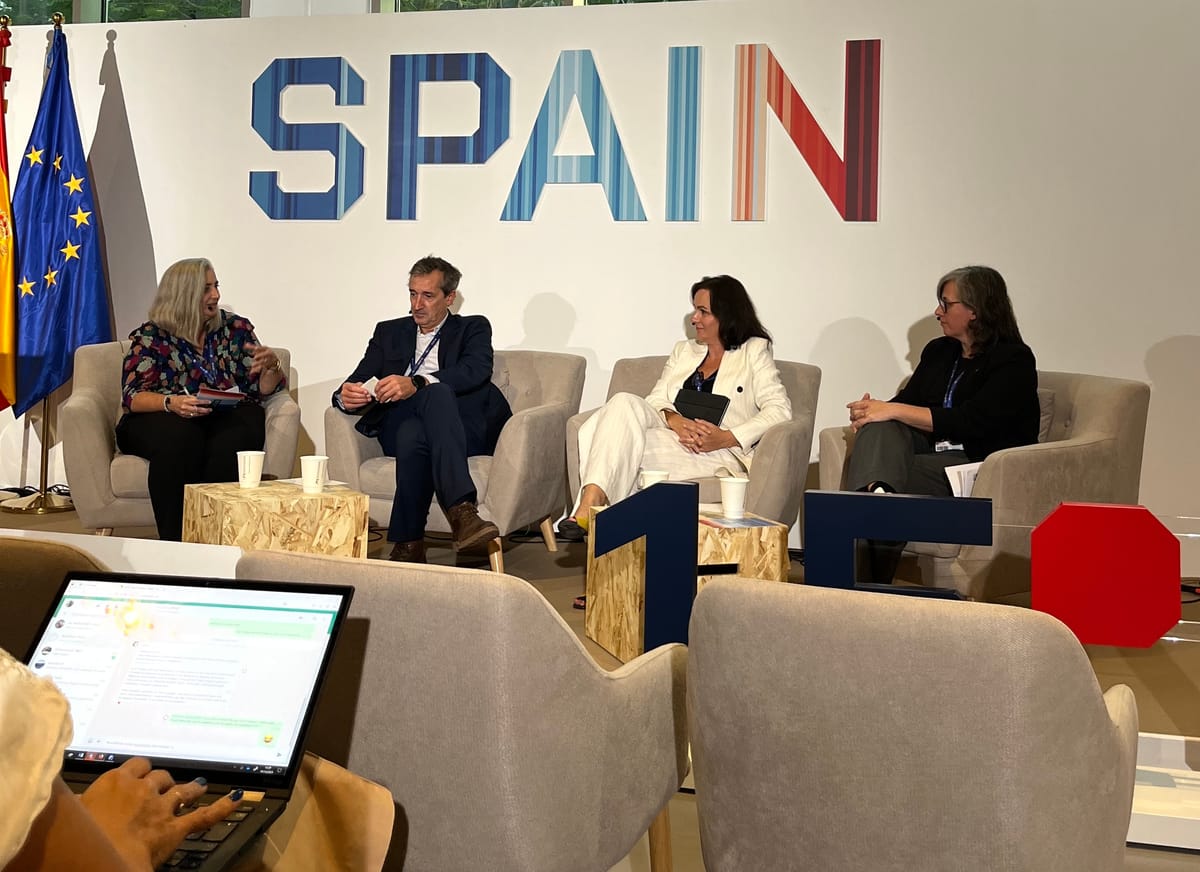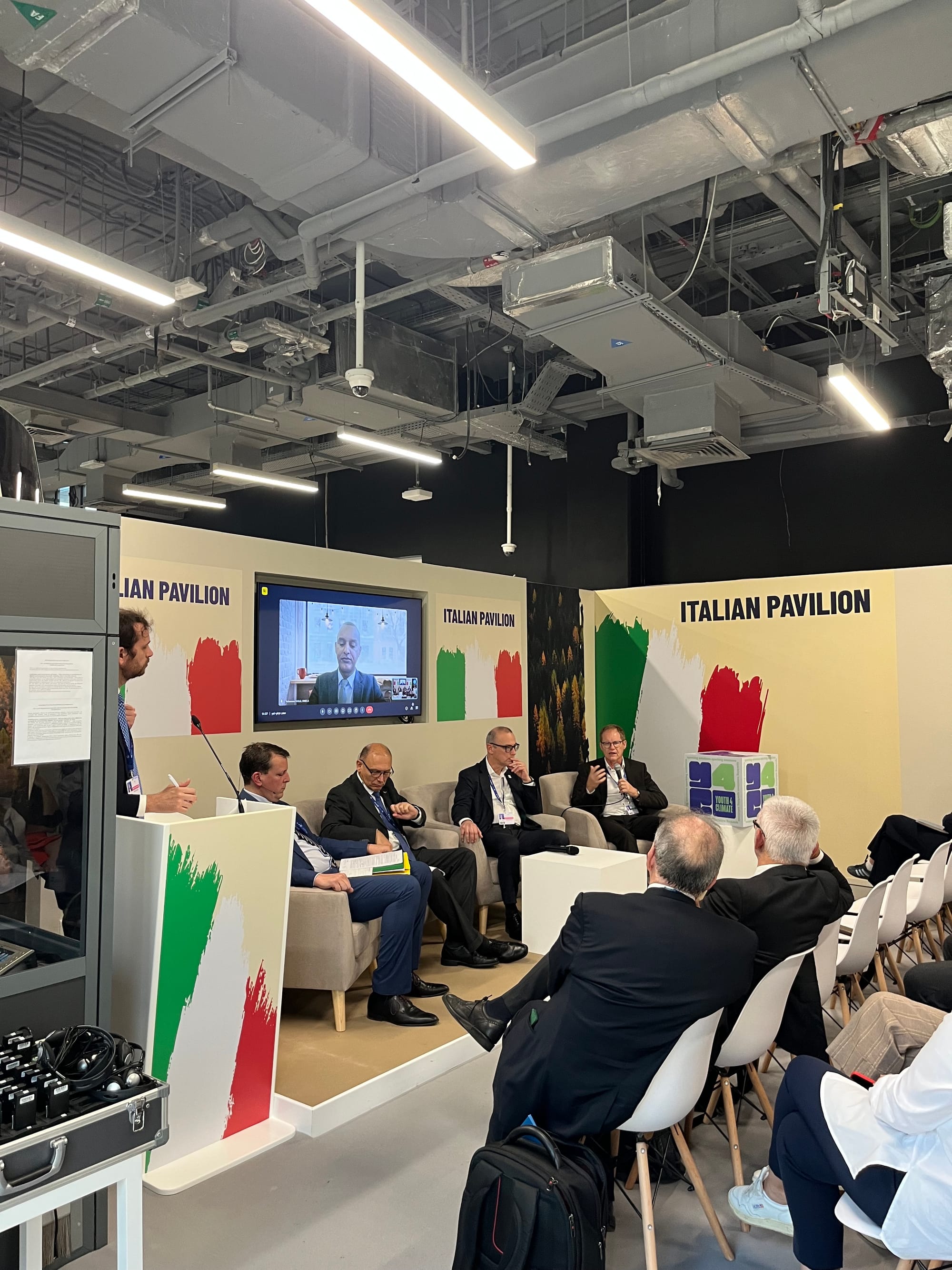Political polarization and climate change mitigation at COP28
Kathryn Boyer, a student at the College of St. Benedict and St. John's University, writes about the intersection of her research and the real world from the COP28 conference.

This piece is part of Project Optimist's student and community reporting program in central Minnesota. A group of students conducted field reporting at the COP28 conference in Dubai and wrote stories that highlight their research. Kathryn Boyer is a sophomore at the College of St. Benedict and St. John’s University with a major in political science.
Political polarization affects serious global issues such as climate change and is something climate activists worldwide are working to overcome.
Divisions within political parties and societies create differences with what each party believes to be the correct solution to the climate crisis, which is becoming increasingly problematic when attempting to mitigate climate change.
At the COP28 Climate Change Conference in Dubai held in 2023, Víctor Viñuales, a sociologist, co-founder, and executive director at ECODES, a nonprofit organization from Spain, advocated for a cultural transition, emphasizing the need to change values to drive climate action.
“We need to change habits, we need to change values … one opportunity is adaptation,” he said. Viñuales’s emphasis on a change in values relates greatly to the effect that political and personal values have on climate change mitigation. If a change in these values is implemented, Viñuales said there would be a ripple effect of change throughout the politically polarized system as well.
Brent Millikan, a discussion panelist during the COP28 conference and resident of Brazil, notes a diminishing influence of climate denialists, urging a focus on acknowledging scientific evidence. “[Climate change is] not an ideological issue, it is fact; it is reality … acknowledging the science” in addition to focusing on the solutions rather than denial is key, he said.
Millikan emphasized the fact that climate change is backed by scientific evidence, therefore if governments, societies, and individuals were to base their mitigation efforts on the science rather than ideological perspectives, there would be much greater progress with climate mitigation.

Joaquín Paredes, an undergrad student from Chile working at the COP28 conference, underscores collaboration despite political differences, recognizing tensions between countries. “Chile is trying to look through the other side of the coin, and create new places for collaboration for climate, climate action in general, mitigation too,” he said. Paredes emphasized how although Chile is politically polarized, the people of Chile are very much in agreement about the issue of climate change, and how climate mitigation is necessary for progress.
Within multi-party political systems in other countries aside from the United States, it is common to see politics divided along the left-right spectrum. Left-right policies tend to be very similar across the board, with left-leaning voters typically in favor of climate change mitigation, and right-leaning voters not so much. Because policies, laws, and government intervention are needed in order to enforce climate action and mitigation, left-leaning voters are typically in favor of such intervention as it is common for them to be in favor of more government involvement and regulation.
On the other hand, right-leaning voters tend to hold the value that less government intervention is for the better; therefore, support of government policies that apply limitations to companies and citizens is not common with this ideology. In addition to this, some policies may increase not only regulation, but taxes as well, and right-leaning voters' commitment to free-market capitalism deters their interest in such increases.

The lack of neutrally worded news information across news sources also poses an issue for political polarization and climate mitigation. Media is one of the main ways in which people perceive climate change, which influences not only the way polarized minds think, but also influences the minds of those who consider themselves neutral, or in the middle of any political spectrum.
For Viñuales, Millikan, and Paredes, some potential solutions to political polarization within climate change mitigation include adaptation strategies, a shift in values, and acknowledging the science behind climate change. Adapting to new ways of thinking can influence public ideology and facilitate progress, they said, as well as emphasizing economic benefits and framing adaptation initiatives as opportunities for growth to grow bipartisan support.
In the fight against global climate change, activists at the COP28 Climate Conference said it is crucial to cooperate and set aside political differences. They emphasized the need for a collective commitment to overcome challenges arising from political discord and focus on real solutions for climate change. They highlighted the urgency for action and called for immediate measures to address the escalating climate crisis intensified by political disagreements.
